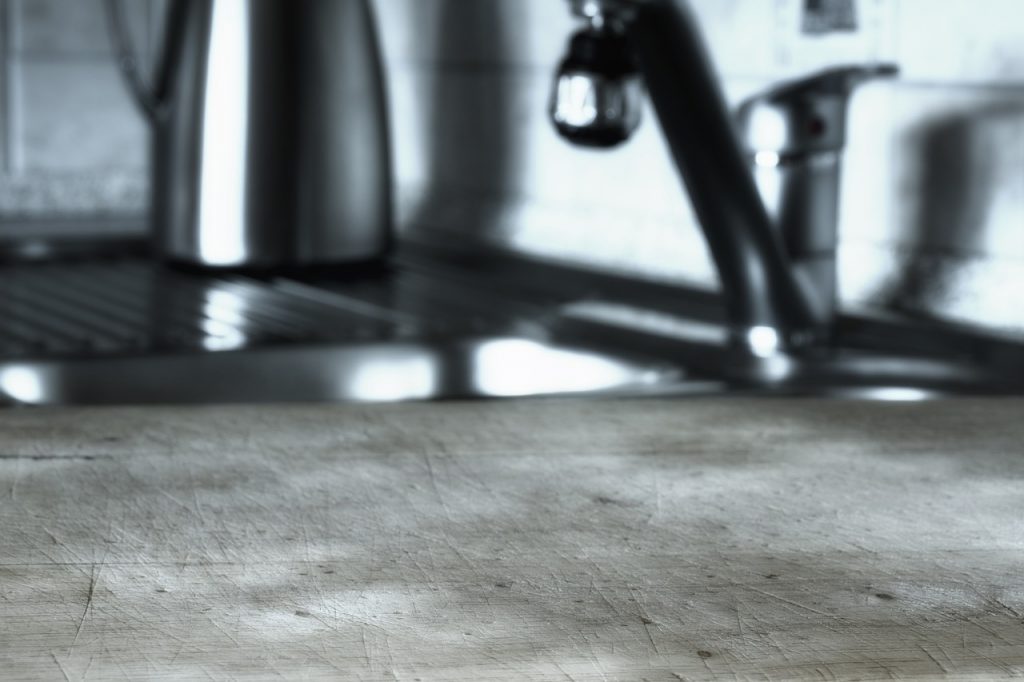
Solid surface materials (like Corian) are a bit unique. There are a lot of questions about what they are and how they are made. Because we’ve already talked about how these countertops are made, we can now address one of the main reasons for buying them: they are the healthiest choice.
What makes solid surface countertops healthy?
Solid surface counters are nearly non-porous, meaning they are incredibly good at keeping water and air out. Without water and air, bacteria cannot survive, so there are no microscopic bacteria on the surface.
Below, we will address how other types of countertops compare to solid surfaces regarding health.
Wood vs Solid Surface – Which is Healthier?
People find wood to be naturally appealing. So you might find them on the inside of many kitchen counters, just not the tops.
There are few exceptions, but wood is considered a porous material. Porous materials are known for easily absorbing water and air.
As a result, it is straightforward for mold to grow. While wood sealants attempt to prevent this, these wear off over shorter periods.
You will never seed mold on a solid surface because it does not retain water. If you don’t believe us, try adding sealant to a deck after a rainstorm (don’t do this). It will ruin your deck by sealing in the water, making it almost worthless.
Marble vs Solid Surface – Which is Healthier?
When comparing these two, you’ve got a bit more competition. Marble is closer to solid surface, and the natural stone doesn’t absorb water.
Marble countertops are unaffected by water, the exception being if there is some preexisting crack. You won’t ever see a water-only stain on a stone countertop.
While marble is less porous than wood, it isn’t completely non-porous. So it isn’t 100% effective.
Solid surface countertops are still more effective but are less heat resistant. Even if you were to warp the surface, it would still maintain its non-porous capabilities.
Natural Stone vs Solid Surface – Which is Healthier?
Other natural stone options (granite) are similar regarding staining. However, you will still need to seal some countertops regularly.
Make sure if you choose the stone, you check on how often you need to seal it.
Tiled Countertops vs Solid Surface – Which is Healthier?
While the tiles themselves are somewhat non-porous, the grout doesn’t fit the same categories. Tiled countertops are not considered entirely non-porous.
If you purchase tile overseas, you run the risk of them containing toxic materials. You should also be wary when buying used materials.
Despite tile having a pretty nice appearance, it is a bit more complicated to handle overall.
Final Thoughts – Why Solid Surface is Healthy
When choosing the best non-porous countertop, the two best options are marble and solid surface. Because marble costs much more, most people stick with the reasonable option.
If you want some help picking the best solid surface for your health, contact our specialists at Solid Surface Canada. Our company will ensure that your space is safe, healthy, and an important part of your dream kitchen.




 Copyright © 2026 · Solid Surface · Web design by
Copyright © 2026 · Solid Surface · Web design by